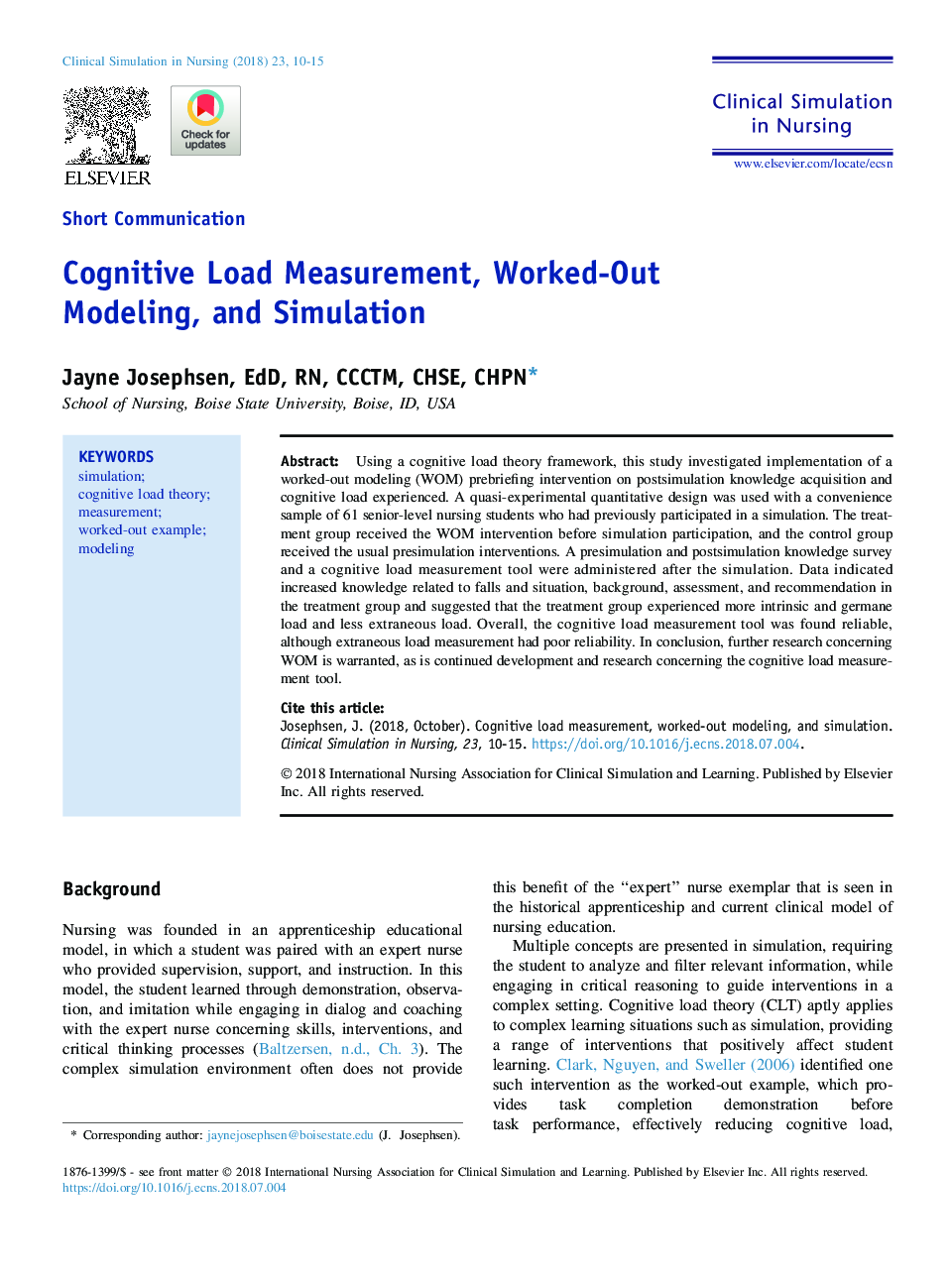| Article ID | Journal | Published Year | Pages | File Type |
|---|---|---|---|---|
| 10158859 | Clinical Simulation in Nursing | 2018 | 6 Pages |
Abstract
Using a cognitive load theory framework, this study investigated implementation of a worked-out modeling (WOM) prebriefing intervention on postsimulation knowledge acquisition and cognitive load experienced. A quasi-experimental quantitative design was used with a convenience sample of 61 senior-level nursing students who had previously participated in a simulation. The treatment group received the WOM intervention before simulation participation, and the control group received the usual presimulation interventions. A presimulation and postsimulation knowledge survey and a cognitive load measurement tool were administered after the simulation. Data indicated increased knowledge related to falls and situation, background, assessment, and recommendation in the treatment group and suggested that the treatment group experienced more intrinsic and germane load and less extraneous load. Overall, the cognitive load measurement tool was found reliable, although extraneous load measurement had poor reliability. In conclusion, further research concerning WOM is warranted, as is continued development and research concerning the cognitive load measurement tool.
Related Topics
Health Sciences
Nursing and Health Professions
Nursing
Authors
Jayne EdD, RN, CCCTM, CHSE, CHPN,
